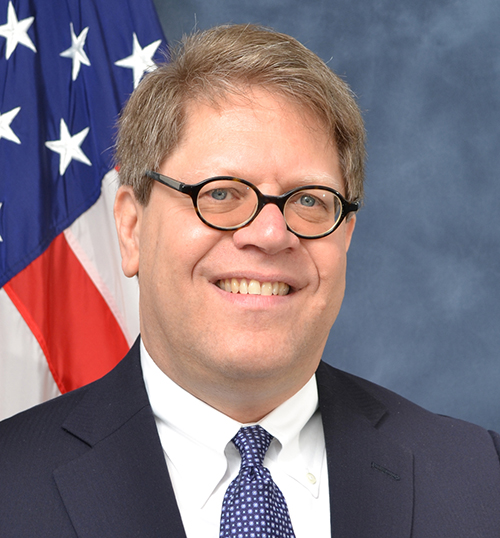With serological assays for SARS-CoV-2 widely available, uncertainty remains around the accuracy of these tests. The revocation of Chembio’s SARS-CoV-2 serology EUA could indicate broader and stricter enforcement by the FDA.
The US Food and Drug Administration (FDA) announced on June 16, 2020, in a press release that the agency revoked the EUA for a SARS-CoV-2 serology assay developed by Chembio Diagnostic System, Inc. (Chembio). Chembio’s EUA for their DPP COVID-19 IgM/IgG System was revoked “due to performance concerns with the accuracy of the test.”
Chembio is a publicly traded company based in Medford, New York, and develops point-of-care diagnostic tests. On May 18, 2020, Chembio had announced a partnership with Thermo Fisher Scientific to distribute their point-of-care SARS-CoV-2 serology test.
The revocation of Chembio’s EUA is the first of its kind since the FDA began issuing EUAs for SARS-CoV-2 diagnostic and serology tests.
To better understand the implications of the FDA’s actions, the COVID-19 STAT Intelligence Briefings Service spoke with Roger D. Klein, MD, JD, a former adviser to the FDA and a faculty fellow at the Center for Law, Science and Innovation at the Sandra Day O’Connor School of Law at Arizona State University.

Roger D. Klein, MD, JD, a former adviser to the FDA and a faculty fellow at the Center for Law, Science and Innovation at the Sandra Day O’Connor School of Law at Arizona State University, noted the mismatching data around the Chembio’s DPP COVID-19 IgM/IgG System. (Photo used with permission.)
Perhaps a Surprising Fact
Klein viewed the Chembio serology revocation as especially unusual because it affected a US company. “Most of the problems with companies were from China,” Klein explained. “This looks like an unusual instance for a United States company in that it appears they actually got an EUA in which the data that was submitted to obtain the EUA was inconsistent with data observed by independent reviews.”
The data that the FDA used to revoke Chembio’s EUA was based on independent data obtained by the National Cancer Institute (NCI). “Data submitted by Chembio as well as an independent evaluation of the Chembio test at NCI showed that this test generates a higher than expected rate of false results and higher than that reflected in the authorized labeling for the device,” the FDA said in a press release. “Under the current circumstances of the public health emergency, it is not reasonable to believe that the test may be effective in detecting antibodies against SARS-CoV-2 or that the known and potential benefits of the test outweigh the known and potential risks of the test, including the high rate of false results.”
Added Klein, “I think most companies are unlikely to have a situation where there’s as substantial a mismatch of the data of the performance and independent testing of the data that they submitted.” Klein did, however, indicate there could be increased scrutiny of tests by the FDA moving forward. “I think that in this particular epidemic a lot of things were put out quickly, and it’s certainly possible. It’s possible that some other tests will come under scrutiny.”
FDA Authorization and Assessment of COVID-19 Serology Tests
While discussing the revocation of the Chembio EUA, Klein had a positive impression of the FDA’s overall handling of authorizing tests in a rapidly changing environment. “The EUAs provided were quite transparent,” Klein said. “I actually thought it was a pretty good model for review of tests, and I thought the way the FDA was handling the EUAs was a good model going forward.”
Others have been critical of the process, particularly around the body of evidence and evaluation of the COVID-19 antibody tests. Michael A. Noble, MD, Chair of the Clinical Microbiology Proficiency Testing Program, and of the Program Office for Laboratory Quality Management, in the Department of Pathology and Laboratory Medicine at the University of British Columbia (UBC), in Vancouver, recently spoke to The Dark Report, the parent publication of COVID-19 STAT.
“A larger number of labs in concordance would provide more confidence about the COVID-19 serology test undergoing review,” Noble explained. “Also, I would expect the federal agencies to use a variety of laboratories to confirm the samples in the validation panel. Because these are all new COVID-19 tests that could be offered in a large number of laboratories nationwide, one would hope NCI would have testing done in a variety of laboratories. Noble is a clinical lab professional and expert in quality control processes for clinical laboratory testing. For the full interview, see “Questions Arise as FDA Assesses Serology Tests,” June 22, 2020, TDR.
Takeaway for Clinical Laboratories
Clinical laboratories should be aware that the FDA may begin monitoring existing tests more closely. While announcing the revocation of the Chembio EUA, Jeffrey Shuren, MD, JD, Director of the FDA’s Center for Devices and Radiological Health, said “By continuing to monitor authorized tests and emerging scientific evidence, we are able to make changes when appropriate—including taking action when a test’s benefits no longer outweigh its risks. Through these efforts, we are able to help assure that FDA-authorized tests meet the needs of the American public.” It remains to be seen what “continuing to monitor authorized tests” will look like moving forward.

—By Caleb Williams, Editor, COVID-19 STAT
Related Resources:
FDA Press Release Announcing Revocation of Emergency Use Authorization for Chembio Antibody Test
TDR Goes In-Depth: Questions Arise as FDA Assesses Serology Tests






